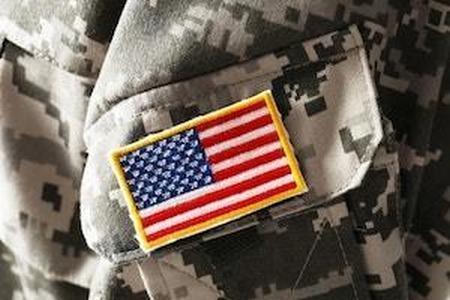Military Service As Pathway to Citizenship
 Given the current state of military technology, fewer people are signing up to join the service than was once perhaps the case. This, along with a general, growing distaste for constant conflict, has led the United States military to consider other options. If you fit certain characteristics, you may be eligible to claim U.S. citizenship after your military service has been completed; still, this is not the case for every enlisted person. Nonetheless, it is a good idea to familiarize yourself with the program.
Given the current state of military technology, fewer people are signing up to join the service than was once perhaps the case. This, along with a general, growing distaste for constant conflict, has led the United States military to consider other options. If you fit certain characteristics, you may be eligible to claim U.S. citizenship after your military service has been completed; still, this is not the case for every enlisted person. Nonetheless, it is a good idea to familiarize yourself with the program.
Origins of the Program
Many, many people have joined the U.S. military in order to seek citizenship, but only since 2002 has the process been expedited specifically for military personnel. In the days following the 9/11 attacks, President George W. Bush authorized a quicker citizenship processing time for military recruits via executive order, knowing that the military would need to grow in size rapidly as it was pledged to attack terrorist cells around the globe. Recruits with potential to become translators or cultural experts were prioritized; however, anyone who met the requirements was permitted to go through the process. In 2009 it was expanded, with recruits getting the opportunity to naturalize at the end of basic training.
There are specific requirements in order to qualify—namely, you must have entered the United States with inspection (in other words, you must not be undocumented), you must have good moral character, at least a basic grasp of English and civics/government, and you must have either previously served honorably, or are currently serving with no detrimental information on your record. Over 100,000 service members have been able to become naturalized U.S. citizens since the inception of the expedited pathway to citizenship in 2002, either upon the completion of basic training or at the conclusion of at least 5 years of honorable service.
Not Without Responsibilities
Both the rights and the responsibilities of naturalization may be able to be extended to a recruit’s spouse and children, if they meet the qualifications, especially if the recruit is deployed. If a spouse or child is not eligible for expedited processing, then he or she may be able to complete his or her naturalization abroad, which is not something most civilians are permitted to do. This may even extend if the recruit is killed in action—the Immigration & Nationality Act permits certain immigration benefits to be extended to the surviving spouse and children of a service member who was either applying for citizenship or had already been granted such.
Some military recruits go through the naturalization process and immediately believe they are home free, so to speak; however, it is possible to have your citizenship revoked if you either do not complete the 5 year service period, or if you do so, but separate from the military under anything but an honorable discharge. While military recruits are exempt from many requirements that a civilian would be subject to when attempting to naturalize, the ‘good moral character’ requirement is not one of them, and it is seen as evidence of bad character if one cannot manage to earn an honorable discharge.
Seek Experienced Legal Assistance
As of this writing, no changes have been made to the current program, despite fears that the current administration may seek to discontinue it. However, knowing your options can save time and trouble later on. The passionate Chicago-area naturalization attorneys at Mevorah & Giglio Law Offices are happy to sit down with you and try to answer any questions you might have. Contact our offices today for a free consultation.
 English,
English,
 Spanish,
Spanish,
 Polish,
Polish,
 Urdu
Urdu












 Make a Payment
Make a Payment



